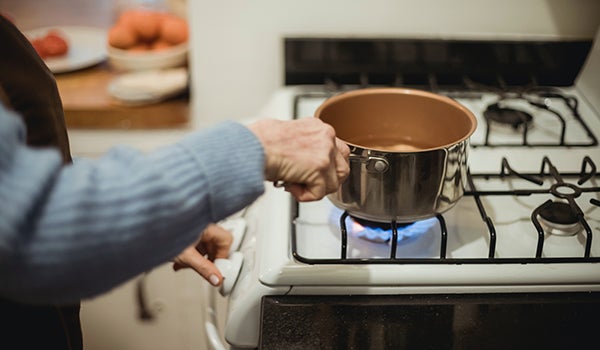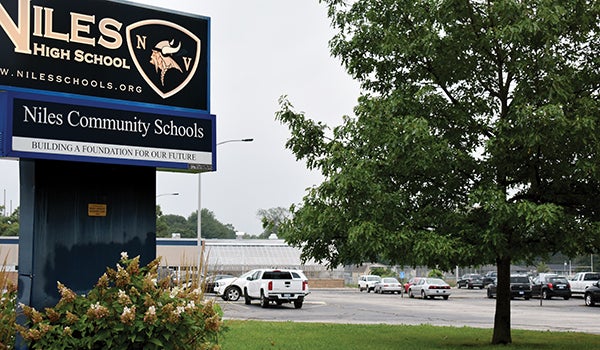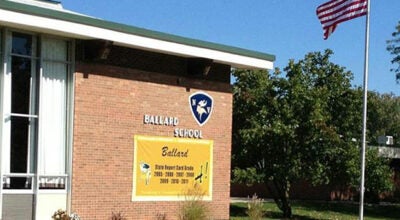Niles Charter Township boil advisory remains in effect
Published 4:19 pm Tuesday, September 20, 2022
|
Getting your Trinity Audio player ready...
|
NILES CHARTER TOWNSHIP — Niles Charter Township residents are still being impacted by the boil advisory issued last week after the township’s water system detected the presence of coliform bacteria in the water supply.
According to NCT Public Works Manager BJ Stepien, the township routinely monitors for the presence of drinking water contaminants. After taking five test samples for coliform bacteria during Sept. 1, one of the samples showed the presence of coliform bacteria. Three follow up samples confirmed the presence of coliform bacteria.
Stepien said residents north of Silverbrook Avenue are safe from the boil order.
Routine samples continue to show coliform bacteria present in the water. The township has begun chlorinating the water system to resolve the presence of coliform bacteria. The township requires consecutive negative tests in order for the boil order to be lifted. Test results take 24 hours to process. Having tested sites on Monday, Stepien said the earliest the boil order could be lifted is Wednesday-Friday.
“We will inform you when our sampling shows that no bacteria are detected,” he said. “Please continue using boiled or bottled water until we notify you otherwise.”
Those with questions may contact Stepien at (269) 684-5647.
The Center for Disease Control and Prevention recommends these actions when dean dealing with a boil water advisory:
- Use bottled or boiled water for drinking, and to prepare and cook food.
- If bottled water is not available, bring water to a full rolling boil for 1 minute (at elevations above 6,500 feet, boil for 3 minutes). After boiling, allow the water to cool before use.
- Boil tap water even if it is filtered (for example, by a home water filter or a pitcher that filters water).
- Do not use water from any appliance connected to your water line, such as ice and water from a refrigerator.
- Breastfeeding is the best infant feeding option. If you formula feed your child, provide ready-to-use formula, if possible.
Handwashing
- In many cases, you can use tap water and soap to wash hands during a boil water advisory. Follow the guidance from your local public health officials.
- Be sure to scrub your hands with soap and water for at least 20 seconds. Then, rinse them well under running water.
- If soap and water are not available, use an alcohol-based hand sanitizer that contains at least 60 percent alcohol.
Bathing and showering
- Be careful not to swallow any water when bathing or showering.
- Use caution when bathing babies and young children. Consider giving them a sponge bath to reduce the chance of them swallowing water.
Brushing teeth
- Brush teeth with boiled or bottled water. Do not use tap water that you have not boiled first.
Washing dishes
- If possible, use disposable plates, cups, and utensils during a boil water advisory.
- Household dishwashers generally are safe to use if:
- The water reaches a final rinse temperature of at least 150 degrees Fahrenheit (66°Celsius), or
- The dishwater has a sanitizing cycle.
- Sanitize all baby bottles.
- To wash dishes by hand:
- Wash and rinse the dishes as you normally would using hot water.
- In a separate basin, add 1 teaspoon of unscented household liquid bleach for each gallon of warm water.
- Soak the rinsed dishes in the water for at least one minute.
- Let the dishes air dry completely before using again.
Laundry
- It is safe to wash clothes as usual.
Cleaning
- Clean washable toys and surfaces with:
- Bottled water,
- Boiled water, or
- Water that has been disinfected with bleach
Caring for pets
- Pets can get sick from some of the same germs as people or spread germs to people. Give pets bottled water or boiled water that has cooled.
- If bottled water is not available, bring water to a full rolling boil for 1 minute (at elevations above 6,500 feet, boil for 3 minutes). After boiling, allow the water to cool before use.
- Boil tap water even if it is filtered (for example, by a home water filter or a pitcher that filters water).
- Do not use water from any appliance connected to your water line, such as ice and water from a refrigerator.
Caring for your garden and houseplants
- You can use tap water for household plants and gardens.






